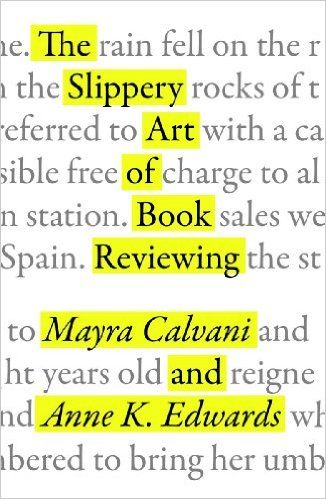 1. Flaunt Your Genius
1. Flaunt Your Genius
Do you know obscure 18th century French authors? Why of course you do, and now is the time to namedrop them.
Do you know critical theory? Why of course you do, and everyone will be impressed if you use a poststructural framework to analyze the book.
Nobody thinks writing a book review is actually about the book’s author. Every review is an occasion to prove that you the reviewer are wicked smart. So show off a little.
Sculpt those devastating one-liners. Toss off rhetorical bombs over your shoulder like so much salt. Parade your genius like it’s a Thanksgiving Day float.
It’s best if the reader doesn’t even think about the writer of the book, but only falls in love with you, and immediately Googles you and stalks you on Facebook and pledges everlasting devotion by retweeting your every thought.
- Bonus Points: Using a Thesaurus
- Extra Bonus Points: Priding yourself on generating hundreds of polysyllabic words without a thesaurus
2. Nitpick the Minor Points
It’s best to avoid the major points of the book. These will probably be discussed by other book reviewers, and you wouldn’t want to repeat them.
Wouldn’t it be more fun to seize upon super minor points, almost minuscule ones, and worry them like a dog with a rag?
If you’re reviewing fiction, complain that one of the minor characters is not as well drawn as a major one, or quibble with the representation of the city or state.
If you’re reviewing nonfiction, choose the most obscure argument, perhaps hidden in dependent clause in half of a sentence, and devote a paragraph to proving that point wrong.
- Bonus Points Fiction: Using the term “missed opportunity” to describe where you wanted the plot to go
- Bonus Points Nonfiction: Arguing with any point made in a footnote
 3. Start Your Review By Complaining
3. Start Your Review By Complaining
Everyone loves it when a reviewer starts complaining right out of the gate.
Suggested topics: how short story collections get short thrift, how independent bookstores are shrinking, or how creative writing workshops have spoiled originality. People love familiar arguments!
And plus, negativity and pessimism are pretty much the tool of the trade when it comes to books. You wouldn’t want to surprise anyone with optimism or a new idea.
- Bonus Points: If you complain about the youth of the author
 4. Use the Book Review as a Soapbox
4. Use the Book Review as a Soapbox
The expert book reviewer usually has some axes to grind. Why not use the occasion of writing a book review to complain about politics or historical fiction?
Your readers are salivating, just wondering what random diatribe might emerge in this particular book review that only tangentially relates to the book in question.
After all, book reviews are basically essays, and the origin of the word essay is the French infinitive essayer, ” to try” or “to attempt.”
So attempt a rant.
- Bonus points: If the book under review is not mentioned until the review is 50% finished.
5. Pick Atypical Examples
This is the secret to all great book review take-downs: find three bad sentences in a book, then quote them as evidence of the author’s terrible prose style.
Boom! You have just succeeded in demolishing the lofty repetition of a so-called talented writer.
I mean, if you have 100,000 words to work with, you can almost always cherry-pick a real stinker. The key is complete and absolute misrepresentation.
- Bonus Points: If you cite dialogue and pretend it’s the author speaking
6. Review Idiosyncratically
If you dislike strawberries, and this book is about strawberries, you have every right in the world to hate this book because of your personal aversion to ripe summer fruit.
Don’t ever try to review books from an objective perspective, say, from someone who might not mind strawberries.
Or if you’ve had a contentious divorce, and yet the book in question is a funny comedy about an amicable divorce, make sure to tell everyone that it’s not realistic, and obviously the book is terrible.
- Bonus Points: If you don’t even realize everyone in the world loves strawberries
7. Decide Your Position on the Book Before You Read It
Pre-judgments are the most helpful way to read books. If it’s a famous author, clearly they are ready for a course of humble pie, and you are just the cook to serve it to them.
Ready-made line: It’s not as good as the book they wrote when they were young.
Every reader wants to be reassured that they’ve already read the best work of the Famous Author, and so no more reading is required.
And because you’ve made up your mind, don’t bother finishing the book. Don’t admit it, of course. But you pretty much got the gist from the first half.
- Bonus Points: If you decide your position beforehand without having read anything else by the author
 8. Don’t Quote from the Book
8. Don’t Quote from the Book
Isn’t it more fun to make wild, subjective claims and let the reader figure out whether these things are true?
Isn’t it much better to summarize and pronounce judgment?
Why would you need to fill up so much space quoting from the book under review when your incandescent prose is available?
It’s truly an amateur move, quoting from the book. Veteran book reviewers know that their audiences would much rather listen to their wisdom than stoop to hear the words of the lowly author.
Besides, it’s too much work to find quotes that prove your point. And quotes get in the way of showcasing your verbal virtuosity!
- Bonus Points: If you quote from another book without ever quoting from the book under review
- Extra Bonus Points: If you quote yourself
9. Talk About How Non-Professional Reviewers Suck
Vast generalizations are wonderful! Clearly, everyone who has written a review on Goodreads or Amazon for free are rank amateurs who deserve to be mocked and spat upon.
And in a backhanded way, you’re really complimenting yourself. After all, if the hoi polloi can’t be trusted, that leaves only you as the staunch defender of all that is right and good about Capital-L Literature.
- Bonus Points: Namedrop the Amazon reviewer that raises your ire
10. Don’t Figure Out What the Author is Saying
It’s a genuine mistake to try to understand the author. Far better a course of action to presume to talk about your personal thoughts on the subject of the book; such as, your personal experience in a nudist colony or your personal experience as a prodigy math whiz.
- Bonus Points: If you never mention the main thrust of the book
Now if you’re really devoted to writing a terrible book review, the book below is the wrong book to buy. Unfortunately, “The Slippery Art of Book Reviewing” will tell you all the good ways to review a book, ways that do not highlight your egocentricity and (shamefully!) focus on the book.
But if you insist on writing good book reviews, you should buy it now, because it has fantastic advice on book reviewing:

